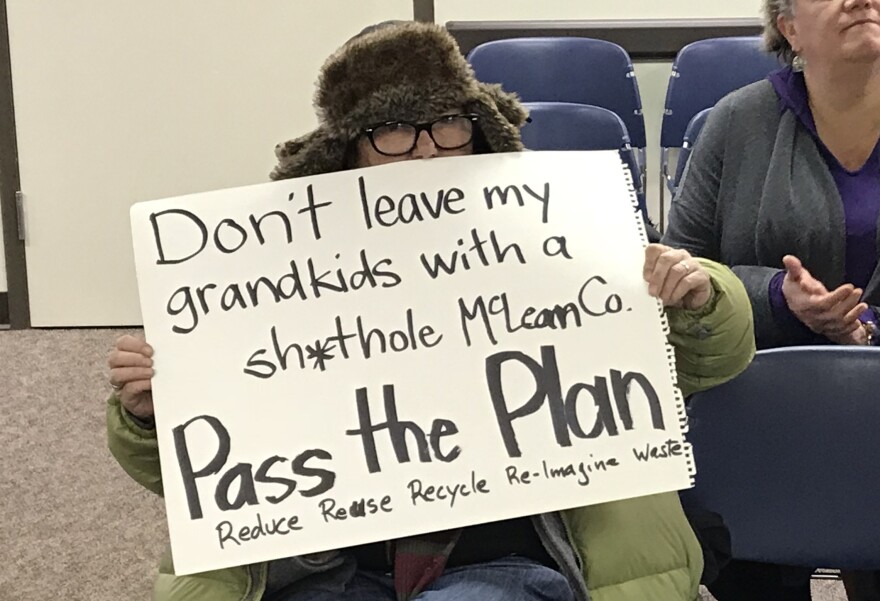The McLean County Board on Tuesday approved the original version of a 20-year solid waste management plan, without the changes passed this month by the Land Use Committee.
The unaltered solid waste plan, developed by the Ecology Action Center over two years with extensive public input, was approved on a 10-8 vote.
Discussion about the plan—a state-mandated roadmap for how the community will manage its garbage and recycling—turned political in recent weeks. The Republican-led Land Use Committee on Jan. 5 stripped language out of the plan that encourages municipal ordinances requiring recycling by commercial enterprises and at apartment complexes. The final version approved Tuesday includes that language.

The change to the original plan was referred to as the "Scritchlow Amendment," for County Board Member Ryan Scritchlow, who proposed the alteration. He said he preferred to let the free market decide the issue instead of having government penalties for noncompliance with recycling goals.
Scritchlow was one of several Republicans who voted against the plan Tuesday. He was joined in opposition by Republican board members Chuck Erickson, Mark Johnson, Randall Martin, Scott Murphy, Jim Soeldner, George Wendt, and Jacob Beard.
Voting in favor of the plan were Republicans William Caisley, Catherine Metsker, Susan Schafer, David Selzer, and Josh Barnett, as well as Democrats George Gordon, Erik Rankin, Carlo Robustelli, Paul Segobiano, and Laurie Wollrab.
Rankin said he was bothered by the Land Use Committee's move to disregard the extensive community input and experts from the Ecology Action Center. He said local governments routinely consider and pass ordinances on a wide range of issues, from pet registration to fireworks to pollution control.
"Forced things are what ordinances do all the time," Rankin said. "Ordinances, which this (plan) does not push but certainly leaves it in the toolbox to need if we do, because ladies and gentlemen, that's what we're in the business of doing. We're in the business of doing the right things for our county."
Most objection to the mention of ordinances came on philosophical opposition to regulation, though Johnson opened a different line of argument.
“We also have to make sure we’re not setting up a plan that is passing on costs to renters, to people who are already having trouble and struggling to afford their current rents," he said.
The current solid waste plan dates back to 1991. The new plan could be in effect through 2037 and works, in part, to reduce solid waste costs and increase the lifespan of the landfill that McLean County would use in the future. The current landfill in rural Bloomington is projected to close in early 2018. McLean County waste would then be trucked to the Pontiac Landfill in Livingston County.
The City of Bloomington and Town of Normal Councils are also expected to vote on the plan.
A solid waste plan is required by state statute.
WGLT depends on financial support from users to bring you stories and interviews like this one. As someone who values experienced, knowledgeable, and award-winning journalists covering meaningful stories in central Illinois, please consider making a contribution.



